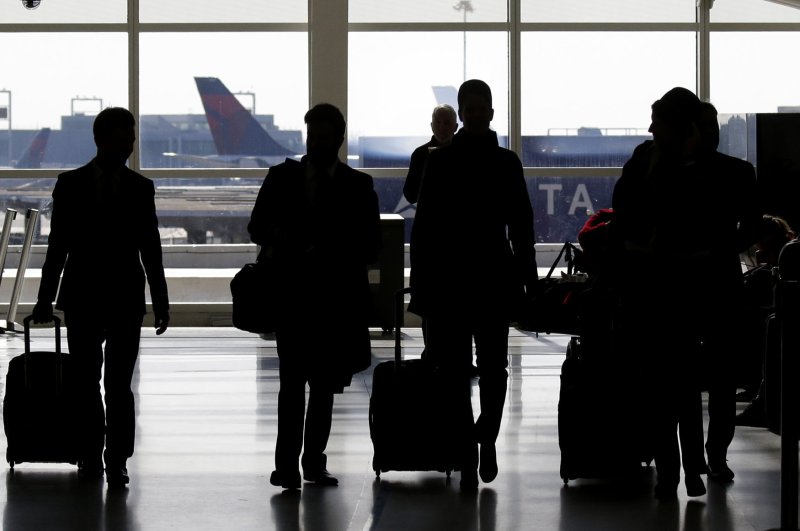The Department of Transportation issued new guidelines for airlines permitting service animals on flights. File Photo by John Angelillo/UPI |
License Photo
Aug. 8 (UPI) -- The U.S. Department of Transportation on Thursday prohibited airlines from banning specific breeds of dogs in its new guidelines on in-flight service animals.
Under the new rules, airlines are permitted to determine whether an animal is safe to travel on a case-by-case basis and may require passengers traveling with service animals to check in at the airport lobby where an airline official can review the animal.
The guidelines prohibit airlines from limiting the types of service animals they will permit on a flight based exclusively on breed.
"The Enforcement Office intends to use available resources to ensure that dogs as a species are expected for transport," the statement said. "Airlines are permitted to find that any specific animal, regardless of breed, poses a direct threat."
The DOT stated it will place a priority on ensuring the most commonly recognized service animals, including dogs, cats and miniature horses, are accepted for transport, but airlines will still be subject to enforcement action if they categorically refuse to transport other species required under the current rule.
Airlines are also not permitted to categorically ban animals based on weight but can deny transport if a service animal is determined to be too large or heavy to be accommodated in the cabin.
Additionally, the guidelines allow airlines to ask questions to determine a passenger's need for a service animal even if the animal has other items indicating it is a services animal, such as a harness, vest or tag.
Airlines aren't required to transport service animals unless the passenger can provide medical documentation of their need to travel with the animal.















